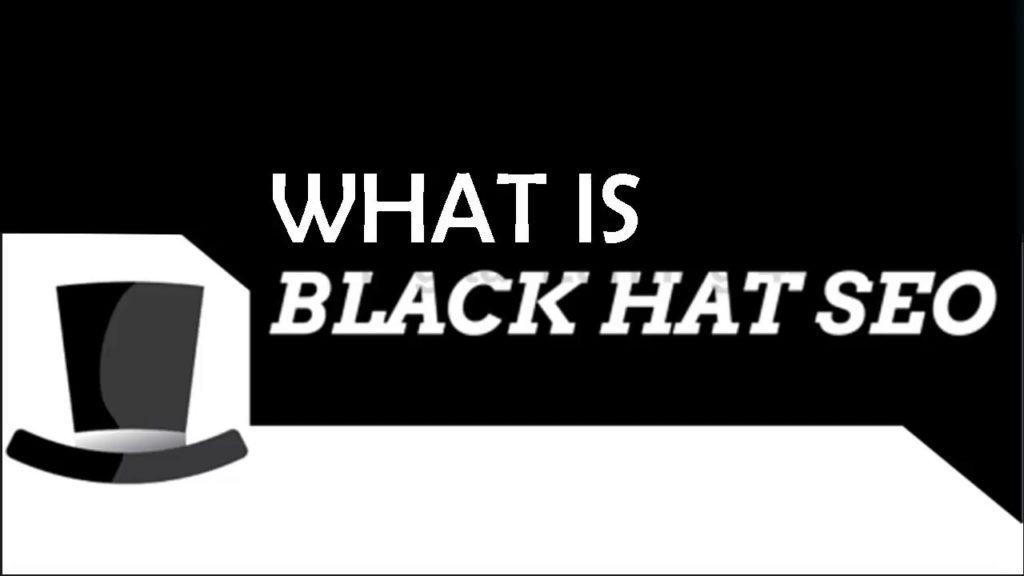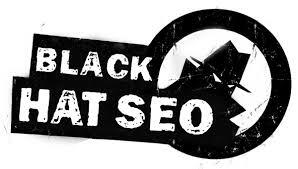Black Hat SEO involves the use of unethical tactics to manipulate search engine rankings, often by breaking search engine guidelines. While these methods can bring fast results, they also carry significant risks, such as penalties and even removal from search indexes. In this article, OctopusWriters will explain common black hat SEO techniques, why they are dangerous, and how you can avoid them to protect your website and achieve long-term success through ethical SEO practices.
What is black hat SEO?
Black hat SEO refers to unethical techniques used to boost a website’s ranking by violating search engine guidelines. The term “black hat” originates from Western movies where villains wore black hats, contrasting with “white hat” SEO, which uses ethical methods. Today, the term is also associated with hackers and malicious online activity.

These tactics, while potentially effective in improving search rankings, go against search engine rules and can lead to serious penalties, including bans. Google and Bing both openly condemn these practices in their Webmaster Guidelines, outlining tactics that should be avoided.
Pros and cons of black hat SEO
Pros of Black Hat SEO
Black Hat SEO offers a tempting option for those seeking quick results in improving website rankings. Although it’s not sustainable in the long term, it can deliver immediate benefits for websites looking to gain fast visibility.
- Rapid Ranking Boost: Results can be seen quickly, driving traffic almost instantly.
- Temporary Competitive Advantage: In competitive niches, these tactics provide short-term dominance.
- Less Manual Effort: Automation tools and shortcuts reduce initial work.
Cons of Black Hat SEO
Despite the quick wins, Black Hat SEO has significant drawbacks that can severely damage a website’s performance and reputation over time.
- High Penalty Risk: Search engines penalize or de-index sites using these tactics.
- Short-Term Gains: Success from Black Hat strategies is often fleeting and vulnerable to search engine updates.
- Damaged Credibility: Using unethical techniques can tarnish both user trust and search engine reputation.
- Traffic and Revenue Declines: Getting banned from search engines leads to a drastic drop in traffic and revenue.
- Expensive Recovery: Repairing the damage from penalties requires substantial time, resources, and effort to restore rankings.
Is black hat SEO important?
Black Hat SEO may seem tempting because it can deliver fast results, but it is not a sustainable or reliable strategy. While some argue that it’s important for quick boosts in ranking, it puts your website at significant risk of penalties, such as being banned or de-indexed by search engines. In the long run, the short-term gains from Black Hat SEO are far outweighed by the potential long-term damage to your site’s credibility, reputation, and growth.
If you’re serious about growing your site sustainably and increasing traffic over time, it’s best to focus on white-hat SEO. Ethical practices not only protect your website from penalties but also build credibility and ensure long-lasting results, unlike the fleeting benefits of Black Hat SEO.
Why is black hat SEO risky?
The risks of Black Hat SEO are significant and can have long-term negative effects on a website’s visibility and reputation. Search engines like Google have developed advanced methods to detect these tactics, which can result in penalties ranging from lowered rankings to complete removal from search results, causing substantial loss of traffic and credibility.
Furthermore, Black Hat SEO often damages user experience, which undermines brand trust and customer loyalty. In an increasingly user-focused digital landscape, deceptive practices can have lasting repercussions.
As search engines continually update their algorithms, relying on Black Hat SEO becomes even riskier. Websites using these methods are always at risk of being caught, making it an unreliable approach for sustained success.
How to report black hat SEO
There are two main reasons why you might want to report Black Hat SEO. First, if your website has been compromised by a malicious hack, virus, or a negative SEO campaign with spammy links. Second, if you notice spammy results appearing on a competitive keyword you’re ranking for. In the latter case, you can submit a webspam report using Google Webmaster Tools, but use it carefully—incorrectly reporting webspam could itself be considered Black Hat SEO.
If your site was hacked or infected, request a malware review after removing the harmful code. For negative SEO attacks involving spammy backlinks, try contacting the webmasters responsible for the links. If unsuccessful, use Google’s Disavow Links Tool.
17 black hat SEO techniques
Buying links
A high-quality, relevant link can significantly drive traffic to your website while also signaling to Google’s algorithm that your site is trustworthy. In addition to bringing in visitors, a strong backlink helps Google better map out your website’s content, making it easier for your pages to appear in search results.
However, buying links is a violation of Google’s Webmaster Guidelines, and according to Google, it doesn’t work. If caught, you could face both automatic and manual penalties that may impact specific pages or, in worse cases, your entire site. Google tracks and distinguishes between purchased and earned links, making it easier for them to detect unnatural link patterns.
Moreover, the types of websites that sell links are often ones you wouldn’t want to be associated with. It’s easier than you might think for Google to identify these unnatural patterns, even across its own platforms.

Free products for links
Exchanging free products or discounts for links, whether you’re providing or accepting them, is viewed by Google as a link scheme. To stay on the right side of their guidelines, use a no-follow link by adding the rel=”nofollow” tag. This ensures that the link won’t affect your site’s ranking in search results, keeping you in compliance with Google’s standards.
It’s important to note that while nofollow links don’t directly impact search rankings, they can still play a significant role in driving traffic and increasing brand awareness. By using nofollow links responsibly, businesses can avoid penalties while benefiting from increased visibility. Additionally, keeping up with Google’s evolving guidelines is crucial, as rules around link schemes can change over time, making it essential to stay informed to protect your site’s long-term SEO health.
Footer links
The footer is often considered prime real estate for adding links, as it appears on every page of a website. However, if you’re engaging in black hat SEO tactics by placing footer links with commercial anchor text on a large scale to manipulate search rankings, you’re likely to face penalties from Google. Google’s algorithms are designed to detect unnatural link patterns, and excessive or manipulative use of footer links is a red flag. Rather than risking penalties through these unethical practices, it’s better to focus on building natural, high-quality backlinks that comply with Google’s guidelines.
Hidden links
Using black hat SEO tactics, such as hiding links in your website’s text or making them the same color as the background, might seem like a clever trick to manipulate rankings. However, Google’s algorithms are designed to catch these deceptive strategies, and you’ll likely face penalties for trying to game the system.
Additionally, stuffing your site with irrelevant links not only violates Google’s guidelines but also weakens your site’s relevance, reducing its chances of ranking well with your target audience. Hidden links are strictly prohibited by Google, and here’s what not to do:
- No hiding text behind images.
- No using CSS to push text off-screen.
- No setting font sizes to 0.
- No turning tiny characters like periods into clickable links.
These black hat SEO methods may offer short-term gains, but they can lead to long-term damage to your site’s SEO.
Comment spam
While it might seem like a good idea to drop a link to your website in the comments section of other sites, you should be cautious. Only include a link if it’s highly relevant to the topic at hand. If not, Google could flag your comment as spam, and this tactic often viewed as black hat SEO is unlikely to improve your search rankings.

Most websites automatically apply a “nofollow” tag to comment links, meaning they don’t transfer any SEO benefits. Beyond that, spamming irrelevant links can harm your brand’s credibility and trustworthiness. Both users and site owners may view your comments negatively, further damaging your online reputation.
For a more effective strategy, focus on contributing meaningful insights to relevant discussions. By offering real value in your comments, you can foster organic engagement and attract visitors who are genuinely interested in your content, rather than relying on low-impact and risky techniques.
Overused anchor text
When creating anchor text, make sure it appears natural. Google favors links that blend well with the content, rather than those added simply to manipulate search rankings. Anchor text should clearly describe what users will find when they click the link, ensuring transparency.
Avoid excessive keyword stuffing or repeatedly using the page title in anchor text. These practices can lead to penalties from Google, as they may be seen as attempts to game the system. Vary your anchor text while ensuring it remains relevant to the linked content.
Internal and external links serve different purposes. Internal links guide users through your site, enhancing their experience, while external links to credible sources can boost the authority of your content.
Whether it’s internal or external links, the choice of anchor text is crucial. Well-crafted anchor text not only improves SEO but also enhances how Google and users evaluate the relevance and value of your links.
Malicious backlinks
At OctopusWriters, we recognize that some black hat SEO tactics involve linking your website to undesirable sites in an attempt to damage your page rankings. These unwanted links can associate your site with poor-quality content, ultimately hurting your SEO performance.
To address this issue, Google offers the Disavow Links tool, which lets you reject these harmful connections. By regularly reviewing your backlink profile and disavowing problematic domains, you can protect your website’s reputation and preserve its search engine rankings.
PBNs
PBNs (Private Blog Networks) consist of websites that link to each other in a networked fashion. They were much more common in the 90s and early 2000s, particularly among fan sites dedicated to TV shows, movies, and musicians. While not always harmful, webrings or link networks become problematic when they’re used to manipulate search engine rankings. Google considers these tactics to be a link scheme, which can result in penalties if detected.
Keyword stuffing
If SEO were just about keywords, ranking at the top would be as easy as cramming pages with repetitive terms. But Google’s algorithms are designed to go beyond such surface-level tactics. Here’s how Google ensures high-quality content:
- It prioritizes semantically-rich keywords that are naturally integrated and offer depth and context to the content.
- Contextual relevance is key, meaning the content must directly meet user intent and provide real, useful information.
- It rewards comprehensive content, favoring pages that cover a topic thoroughly over those that rely on superficial keyword usage.
By focusing on relevance and meaningful connections, Google ensures that well-constructed, high-quality content rises to the top over manipulative SEO strategies.

Hidden content
Hidden content, much like hidden links, refers to text that blends into the background by using the same color, making it invisible to users. This strategy is often employed to overload a page with keyword phrases, long-tail keywords, and semantically-related terms. However, Google’s algorithm is advanced enough to distinguish between keywords embedded naturally in the content and those that are hidden.
There are a few ways hidden content can unintentionally end up on your website:
- A guest post contributor might include hidden content within their submission.
- Your comment moderation system may fail to detect and block hidden content.
- Your site could be compromised by hackers who insert hidden content, a method known as parasite hosting.
- An authorized user might mistakenly copy and paste styled text from another source, unintentionally inserting hidden content.
Despite this, not all hidden content is banned. As long as the content is visible to both users and search engines, it’s generally acceptable. For instance, content that is displayed to mobile visitors but hidden from desktop users is often considered fine.
Article spinning
Article spinning is a practice where content is reworked by altering word choices, restructuring sentences, or rewriting entire sections, while maintaining the same core information. This technique can be done either by hand or through automated software.
Despite advancements in spinning technology, Google penalizes spun articles as they degrade the internet’s content quality. These rewritten articles fail to contribute meaningful, unique content and are seen as manipulative SEO tactics.
Plagiarized or duplicated content
At OctopusWriters, we understand that practices like content duplication, plagiarism, and scrapping—common tactics in black hat SEO—can lead to serious legal consequences by violating copyright and trademark laws. These unethical methods involve stealing content, which harms both the original creators and the overall quality of the web.
Because Google values authentic, high-quality websites, plagiarism is grounds for penalties. We emphasize the importance of originality to ensure your site thrives in the long run without facing SEO penalties.
Rich snippets spam
Rich snippets enhance search results by offering more information, potentially increasing traffic to your site. Unfortunately, the schema used to create these snippets can be exploited for manipulation. As a result, Google has dedicated a full support page to guide users on how to handle these issues properly.
Cloaking
Cloaking is a classic black hat SEO technique that remains in practice even today. The trick is to use a flash or animated page to hide content from visitors while displaying something different to Google’s crawlers in the HTML. If Google discovers this, your site will be penalized.

Doorway pages
Doorway pages are a cloaking technique used to rank for specific keywords, but instead of providing useful content, they redirect users to other pages.
These pages may also be called:
- Bridge pages: These act as a “bridge,” taking users from the search results to a different destination without delivering relevant content.
- Portal pages: Pages that serve as portals, but primarily exist to push visitors to another site rather than offering genuine information.
- Jump pages: Pages that force users to “jump” to another page, typically used to manipulate traffic flow without adding value.
- Gateway pages: These act as “gateways” by ranking for certain keywords, but simply direct users elsewhere.
- Entry pages: Pages that serve as a point of entry for search engines but don’t provide the actual content visitors are searching for.
Keyword stuffing in alt tags
You might think that alt-tags provide a risk-free space to insert numerous keywords, but doing so can actually hurt your website’s ranking.By misusing alt tags, you’re not only undermining your own efforts but also doing a disservice to your site’s visitors. Alt tags are designed to:
- Be read by screen readers for users with visual impairments.
- Appear if an image fails to load.
- Help search engines better understand images on your site.
Hacked website
At OctopusWriters, we understand that website security plays a crucial role in maintaining search engine rankings. Although an unsecured website might not trigger a Penguin or Panda penalty, the consequences of a security breach can be equally severe. If your website is compromised by attackers injecting malicious code, Google can step in and block your site from appearing in search results.
The loss of visibility doesn’t just affect your rankings; it can also damage the trust of your visitors. When users attempt to access your site and see a security warning, it can lead to a negative perception. With black hat SEO exploiting vulnerabilities to gain an edge, it’s essential to protect your site from these threats. A drop in rankings due to security issues can mimic the impact of a formal Penguin or Panda penalty.
While a security breach isn’t considered black hat SEO, the consequences can be just as destructive. Your website becomes exposed to more attacks, and the damage to your traffic and reputation can be hard to reverse. Securing your site is critical not just to avoid penalties but to protect the hard work you’ve put into building your rankings and credibility.
Even if you receive a warning through Google Analytics about a hack, the harm to your rankings may have already occurred. Google’s goal is to shield its users from harmful content, and once they detect malicious code on your site, it can result in a steep drop in search visibility.
Why you should avoid black hat SEO and what will happen if you use it?
Black hat SEO strategies are in direct violation of search engine rules, so any website using them is likely to be penalized. This can result in a Google Penalty, which may cause the website to drop in rankings or be de-indexed entirely.

Furthermore, black hat SEO approaches aren’t sustainable for the long term, as they are easily spotted by search engines, and any loopholes are quickly fixed. These tactics can also have unintended consequences. Techniques like gateway pages and excessive keyword stuffing can drive users away, leading to higher bounce rates and damaging the site’s overall user engagement.
Best practices to avoid black hat SEO
Avoiding Black hat SEO practices is critical for sustaining your website’s search engine rankings over time. To ensure your SEO strategies are both ethical and effective, consider these best practices:
- Prioritize quality content: Focus on developing content that provides real value to your audience, not just content created to rank higher on search engines.
- Follow search engine policies: Make sure you’re always in line with Google’s and other search engines’ guidelines to avoid penalties.
- Build legitimate links: Focus on earning backlinks organically through valuable content and authentic outreach, steering clear of paid or deceptive methods.
- Use keywords wisely: Incorporate keywords naturally into your content, avoiding keyword stuffing or irrelevant use.
- Evaluate your SEO efforts: Keep a close eye on your SEO strategies to make sure they remain ethical and compliant with best practices.
Keeping your SEO strategies up-to-date and aligned with the latest trends is essential for long-term success.
4 black hat SEO case studies
J.C. Penney’s Link Scheme Exposed
J.C. Penney found itself in hot water after its aggressive link-building strategy came under scrutiny. The tactics used to boost their search rankings quickly backfired when they were exposed.
- J.C. Penney was found to have over 2,000 links pointing to their dress category pages.
- The links were from low-value sites that appeared to exist solely for backlinking purposes.
- The New York Times brought the issue to light.
- Following this exposure, Google penalized J.C. Penney, dropping their rankings from the first page to the fifth for their targeted keywords.
Sea Wall, A Life
In 2019, the Broadway play Sea Wall/A Life, starring Jake Gyllenhaal, had a website that naturally gained high-authority backlinks from respected sources like newspapers. After the site seawallalife.com was abandoned, it was acquired by an SEO expert who saw an opportunity. They added a link to a “blog” in the footer, and the homepage had only one internal link, funneling all PageRank to the blog.
The SEO developed a blog that quickly ranked highly in search results. However, Google eventually caught on to the manipulation, and the website was de-indexed entirely.
Aged domain transfer strategy
I’ll soon be releasing a detailed SEO case study (and podcast episode) on this technique with Adam Smith. His method involves purchasing old, abandoned websites that have acquired natural backlinks over time.
He then either creates a niche site on the same domain or redirects the domain to another website to pass on the PageRank. Both approaches take advantage of the site’s existing backlinks, giving a boost to content that hasn’t earned links on its own.
While Google allows domain redirections during acquisitions or domain changes, it’s against their policies to buy a site just to transfer its backlink authority to your own.

How can you avoid Google detecting a redirect?
- Publish a blog post on your main website.
- Redirect the aged domain to that blog post.
- Use exact match anchor text within the blog post to link to other pages you want to strengthen.
- Announce a press release explaining that you acquired the domain for valid, legitimate reasons.
DoNotPay’s SEO fail
DoNotPay quickly rose to the top of Google, reaching nearly 2 million monthly visitors in just 24 months, but their traffic plummeted to 500,000 in less than a month, coinciding with Google’s Helpful Content and core updates. Many speculate that their use of mass programmatic or thin content, often associated with black hat SEO, contributed to the drop. Additionally, they lost 50,000 backlinks due to a broken redirect chain, serving as a reminder to keep spam signals low when scaling.
White hat SEO and black hat SEO combined
Given the extensive provisions in Google’s webmaster guidelines, it’s nearly impossible for website operators to completely avoid violations. Any attempt to manipulate rankings by building links or increasing link popularity is already considered a breach of the rules. To provide some leeway, Google recognizes varying levels of infractions.
As a result, a middle ground has emerged—neither fully compliant with best SEO practices nor outright violating the guidelines. This gray area is known as grey hat SEO. Many websites in the SEO industry operate within this zone, balancing between legitimate optimization and borderline techniques.

Frequently asked questions about black Hat SEO
What is white hat SEO?
White hat SEO is the ethical alternative to Black Hat SEO. It involves using strategies that improve your search rankings on SERPs without compromising the integrity of your site. These methods adhere strictly to search engine guidelines, ensuring your website grows in visibility while staying compliant with the rules.
Is black hat SEO illegal?
Black hat SEO techniques, while not necessarily illegal, violate the terms and conditions set by major search engines. These tactics aim to manipulate search rankings, but they come with serious risks. Websites using such methods can face penalties, including the possibility of being banned from search engine results altogether.
How to check if a site is doing blackhat SEO
- Analyze sudden traffic spikes: Check for any unusual or sudden traffic increases using tools like Google Analytics. A dramatic, unexplained jump in traffic may indicate the use of manipulative black hat SEO tactics such as automated link building or mass content generation.
- Review anchor text distribution: Look at the anchor text used in backlinks. If there’s an overuse of exact-match anchor text or unnatural patterns, it could signal manipulative link-building strategies, a common black hat SEO tactic.
- Inspect for poor-quality content: Browse through the site’s content to see if it’s low quality, thin, or irrelevant to the site’s overall theme. Content that feels generic, automatically generated, or stuffed with irrelevant keywords is a common indicator of black hat SEO.
- Monitor for doorway pages: Doorway pages are used to rank for specific keywords and then redirect visitors to different pages. Test URLs across the site to see if any redirect users unexpectedly to other pages, a sign of this black hat tactic.
- Use SEO auditing tools: Tools like Screaming Frog or Sitebulb can help detect hidden elements, unusual redirects, or other SEO practices that deviate from best practices. These tools can scan the site and provide insight into suspicious SEO activities.
- Check for private blog networks (PBNs): Investigate the site’s backlinks to see if they come from a network of interconnected websites that seem irrelevant or low-quality. This type of manipulation, known as a private blog network (PBN), is a classic black hat SEO tactic.
How do you combat against black hat SEO tactics?
To effectively protect your website from black hat SEO tactics and ensure long-term success, follow these key strategies:
- Regularly audit your website with tools like Ahrefs or SEMrush to detect any issues.
- Disavow bad backlinks through Google’s Disavow Tool to avoid penalties.
- Focus on quality content that provides real value and naturally earns legitimate links.
- Enhance site security with SSL certificates and security plugins to prevent attacks.
- Track duplicate content to ensure your content isn’t being scraped or misused.
- Stay updated on SEO best practices and search engine guidelines.
- Report unethical tactics to Google if your competitors engage in black hat SEO.
What does black hat SEO focus on?
The goal of black hat SEO is to artificially boost rankings using shady techniques such as keyword stuffing, cloaking, and spammy backlinks, often leading to penalties.
Should you consider using black hat SEO in 2024?
In 2024, relying on black hat SEO is a highly risky strategy. Although techniques like cloaking, keyword stuffing, and buying backlinks might provide quick ranking boosts, the penalties for being caught are severe. Search engines, especially Google, are now more adept at identifying these manipulative practices and will penalize sites with ranking drops, or even complete removal from search results.
The short-term gains from black hat SEO are simply not worth the long-term consequences. Recovering from a Google penalty can be difficult, and the damage to your brand’s reputation can take years to repair.
Rather than gambling with your site’s future, the best approach in 2024 is to stick to white hat SEO methods that focus on ethical, sustainable practices. By investing in quality content and building genuine backlinks, your website will grow steadily and stay protected from algorithm updates and penalties.
Conclusion
Ultimately, using black gat SEO tactics is a gamble that can cost your site credibility, rankings, and even search engine visibility. Instead of risking penalties, focus on ethical SEO methods that bring lasting benefits. As OctopusWriters has highlighted, building a strong foundation with white hat SEO is the key to long-term success.


